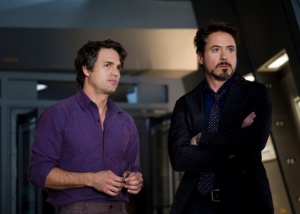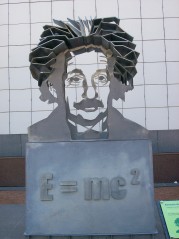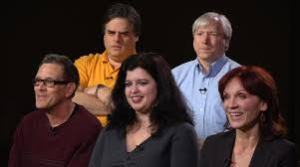Early in the movie Man of Steel, Clark Kent is shown as a young boy at school, overwhelmed by all of the incoming stimuli: lights, movement, scratching, clock ticking, voices, feelings and sights beyond what humans normally see. He falls to the floor and his mother has to be called.
Clark Kent – age 9: The world’s too big, Mom.
Martha Kent: Then make it small. Focus on my voice. Pretend it’s an island out in the ocean. Can you see it?
Clark Kent – age 9: I see it…
I watched this with my 11 year old who does not have an official diagnosis yet, but if he doesn’t have Asperger’s Syndrome (AS), I’ll eat my hat.
“That’s what it’s like for me,” he said. “Well, not exactly, because I don’t have X-ray vision. But it’s like everything is coming at me.”
I know what he’s talking about. We did some preliminary testing on our son, such as Cambridge University’s 50 question AQ, (the Austism Spectrum Quotient) and it became clear that many of my own little quirks are spectrum-esque. (In fact, I scored higher than he did on the quiz.)
I often feel inundated by external stimuli that others seem to easily be able to ignore. I once panicked and ran out of a church service because the lighting clashed with the music. So I get where my kid is coming from.
“The boy whose brain could unlock autism,” the December 14 Medium article about Henry Markram, a neuroscientist studying the differences in brains of people with ASD (he is working under the long-held theory that AS is a type of autism, but calls it “intense world” syndrome), put it this way:
IMAGINE BEING BORN into a world of bewildering, inescapable sensory overload, like a visitor from a much darker, calmer, quieter planet. Your mother’s eyes: a strobe light. Your father’s voice: a growling jackhammer. That cute little onesie everyone thinks is so soft? Sandpaper with diamond grit. And what about all that cooing and affection? A barrage of chaotic, indecipherable input, a cacophony of raw, unfilterable data.
Exactly.
But what if all this hypersensitivity is actually a good thing? What if it’s the next evolutionary step and we are the forerunners to tomorrow’s superheroes?
 Take a look at the comics and movies, and you’ll see a theme amongst the Supers.
Take a look at the comics and movies, and you’ll see a theme amongst the Supers.
Bruce Banner (The Incredible Hulk): loner, does incredible research, deals with anger issues.
Tony Stark (IronMan): brilliant, arrogant, sucks at empathy, hates being handed things.
Or how about a literary hero?
Sherlock Holmes: connects events, notices details, reads people’s behaviors and motives better than even they themselves do, all to the bewilderment of the more normal-seeming characters he interacts with, including the well-educated and conventionally smart Dr. Watson.
“If history has taught us anything, it is that evolution always wins.”— Faora, Man of Steel
Does evolution always win? If so, are we— the hypersensitive, the Aspergers, the autistic— winners? If society rejects us at worst and misunderstands us at best, what have we won?
Evolution is a series of subtle changes over time. Something considered to be a genetic mutation today may become more and more prevalent until one day in the future it has become the new normal.
Suppose there was a time in our distant past when most of our ancestors were born with nostrils facing up rather than down. It would have been considered normal, even beneficial in their watery environment. But climbing up on the land, they wouldn’t have done so well, especially when it rained.
Over time, fewer and fewer of them survived the monsoon seasons until eventually they died out, and the nostrils-down nose became the norm.
A lot of people would agree that it takes a special (read: weird) kind of person to think long enough, hard enough, deeply enough about a subject to come up with something like fire, the wheel, upside down noses, the theory of relativity.
 By now we’ve all heard the assertion that Einstein had autism, or more specifically, Asperger’s. Not everyone agrees with this postmortem diagnosis. (Aspergers hadn’t been invented yet, and autism wasn’t really on anyone’s radar, either).
By now we’ve all heard the assertion that Einstein had autism, or more specifically, Asperger’s. Not everyone agrees with this postmortem diagnosis. (Aspergers hadn’t been invented yet, and autism wasn’t really on anyone’s radar, either).
Some people on the spectrum appreciate being compared to the great scientist; others feel the claim downplays the struggles those with severe cases of autism deal with every day. And new fMRI research is showing brain differences between Asperger’s and autism, suggesting the two may not be as similar as once thought.
 Temple Grandin is one who believes Einstein, Bach, Newton and other geniuses did show signs of having AS.
Temple Grandin is one who believes Einstein, Bach, Newton and other geniuses did show signs of having AS.
She gave a TED Talk about how we should teach kids on the spectrum. These kids often have a knack for math, or music, or science. They understand things about these subjects that most students will spend years struggling to learn.
Her point is that if regular people can learn these subjects, kids with AS can learn the social skills that come naturally to others. We just have to innovate new ways to teach them how to recognize and respond to social cues, organize their time and tasks, and learn coping mechanisms for dealing with the overwhelming influx of stimuli that do not overwhelm their mainstream peers. You can’t teach that stuff at a blackboard.
Grandin sees AS as a gift. A difference, not necessarily a disability.
“The really social people did not invent the first stone spear. It was probably invented by an Aspie who chipped away at rocks while the other people socialized around the campfire. Without autism traits we might still be living in caves.”
— Temple Grandin, Thinking in Pictures
If Grandin figures Aspies have always been with us, she might disagree with my theory that we are on the threshold of something new. But I would argue that the guy who made that spear was a bit of a superhero in his day.
Either way, we agree on one thing. My son’s differences are a gift. I treasure how uniquely intelligent he is. I’m amazed by his ability to see things from a different angle. I look forward to the day he uses his special talents to impact our world for the better.
 On Sunday night, 60 Minutes aired a story about ‘Memory Wizards,’ a tiny segment of the population with an uncanny ability to remember in minute detail everything that ever happened to them, complete with dates, from many, many years ago.
On Sunday night, 60 Minutes aired a story about ‘Memory Wizards,’ a tiny segment of the population with an uncanny ability to remember in minute detail everything that ever happened to them, complete with dates, from many, many years ago.
This is a new phenomenon, and scientists are a bit baffled. And brain scans of these individuals are also showing that their minds work differently.
Another super power.
Perhaps humanity is preparing to turn a corner. Maybe in the not too distant future, our brains will begin to differentiate, and it will be seen as an advantage to be hyper-focused, capable of greater thought power in one area even while sacrificing proficiency in more broadly accepted social norms.
After all, a hallmark of being Super is the willingness to sacrifice for the greater good. As Uncle Ben told SpiderMan, “With great power comes great responsibility.”
I believe it is entirely possible we are on the verge of the next phase of human existence. Homo Asperger? Homo Superior?
Can you see it?
I see it.
‘Memory Wizard’ Louise Owen said:
“You can be Clark Kent. You can sort of blend in with everybody else. But then, when you really need to fly? You can totally fly. And it’s awesome.”


So interesting. The “intense world” theory really registers with me, too. All the best as you explore these possibilities with your son.
LikeLike
Reblogged this on Appalachian aspie..
LikeLike
After seeing The Social Network I’m convinced that Mark Zuckerberg has it. I have a cousin that has it and I feel bad. He is brilliant at his job (taxes), but he says very, not so much mean, but maybe true but blunt things on Facebook. We all just read with our mouths open going, “I can’t believe he said that!” but then realize that it is like you say, an unemotional response to something. Take care of that boy of yours!
LikeLike
Zuckerberg does have the socially unsavvy characteristics! At least in the movie.
There seems to be an inverse correlation between extreme intelligence and social skill/common sense in a lot of people, Aspie or no. Very few people are highly gifted across the board. But I’m optimistic for my son – he has much higher emotional intelligence than I did at his age.
LikeLike